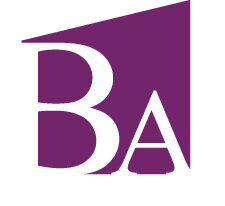Greed ‘In a Word’ KILLS
I continue to be appalled at the recklessness and destruction of lives caused by the self-indulgent greed of a small group of people whose ethical compass must have been checked at the door. A select group of Private Equity (PE) firms and the executives of the publicly-traded companies that ‘Sell’ (and I use that term very, very loosely) to them have made the economic impact associated with the Covid-19 Pandemic far worse than it needed to be.
PE firms basically fit into two categories. Predatory and Partnering.
The first and by far the vast majority of Private Equity firms are PARTNERING. They are focused on bringing funding, expertise and professional business practices primarily to private companies where they see real opportunities for substantial growth. These PE firms and the executives of the company certainly do well, but they do so because the company is enabled. In these transactions virtually everyone benefits even if the changes required seem painful to some. Employment at these PE backed businesses grow substantially while opportunities are made available to a wide group of people. I’ve been involved in quite a few of these efforts and it is simply an exciting (albeit extremely intense) experience for everyone who understands why we are in business.
The second, while small in number and enormous in dollar impact are PREDATORY. The partners at these firms actively hunt for publicly traded companies that have the capability of loading on substantial levels of debt. The partners from these firms approach the company executives with a compelling, albeit completely unethical, proposal. They will offer to ‘buy’ the company by loading it up with debt. The company executives (and usually the Board of Directors who has to approve this) are guaranteed outsized bonuses, payouts, and instant vesting of all stock in order to approve the acquisition.
These Predatory PE firms take enormous ‘management fees’ from the company (often annually) and then drive draconian expense cuts throughout the organization so that it can make the debt payments as long as possible. The longer this goes, the more money the PE firm gets in fees and even has the possibility of selling it to yet another Predatory PE firm. Several dozen people make hundreds of millions of dollars while the tens of thousands of employees are left do more with less until the company declares bankruptcy. The banks that lend to these buyouts are no less culpable. They reap large fees for loans that have high interest rates with first rights of payout in the event of any asset sale.
Greed on a few people’s part (those with the power) explains more than half of the ‘WHY’ companies are not surviving the economic hit and aftermath of the pandemic. However, this situation is a perpetual one that is only made more clear when organizations are under stress. Every year there are upwards of a 100 of these PE owned bankruptcies. Let’s look at a few recent bankruptcy filings courtesy of Pitchbook analysis.[i]
Hertz – Listed $1 Billion in Cash and $18.8 Billion in Debt. Most of the debt comes from a 2005 buyout by Clayton, Dubilier & Rice (along with others) that loaded the company with debt. The PE firm (now in control of the company) paid itself $1 Billion six months after acquisition adding even more debt to Hertz.
24 Hour Fitness – Listed a $1.3 Billion debt load from a 2014 buyout by PE firm AEA Investors and the Ontario Teachers’ Pension Plan
Neiman Marcus - $5 Billion in debt from one set of PE buyouts. Then the company was sold to another PE adding even more debt.
J. Crew - $1.7 Billion in debt while TPG and Leonard Green & Partners pulled $760 million out of the firm in special ‘dividends’
I and others have chronicled a number of these over the years including the repeated ones we see in the casino, and CPG industries. Debt not used to further the strategic advantage of a company sets it up for failure.
This situation continues and will continue as long as there is no real oversight of corporate executives. While the Board of Directors has that responsibility, it is well documented that they are too well compensated and far to dependent upon staying within the good graces of the CEO to provide any real control. The entire process of joining, remaining and being compensated for ‘serving’ on a board of directors MUST CHANGE or will continue to watch tens of thousands of employees try their best to do what is right only to see companies continue to go under.
[i] Lewis, A. 2020, “Private equity-backed bankruptcies surged in May, but future might not be so bleak.” Pitchbook, June 5, 2020, (https://pitchbook.com/news/articles/private-equity-backed-bankruptcies-surged-in-may-but-future-might-not-be-so-bleak?sourceType=NEWSLETTER).


